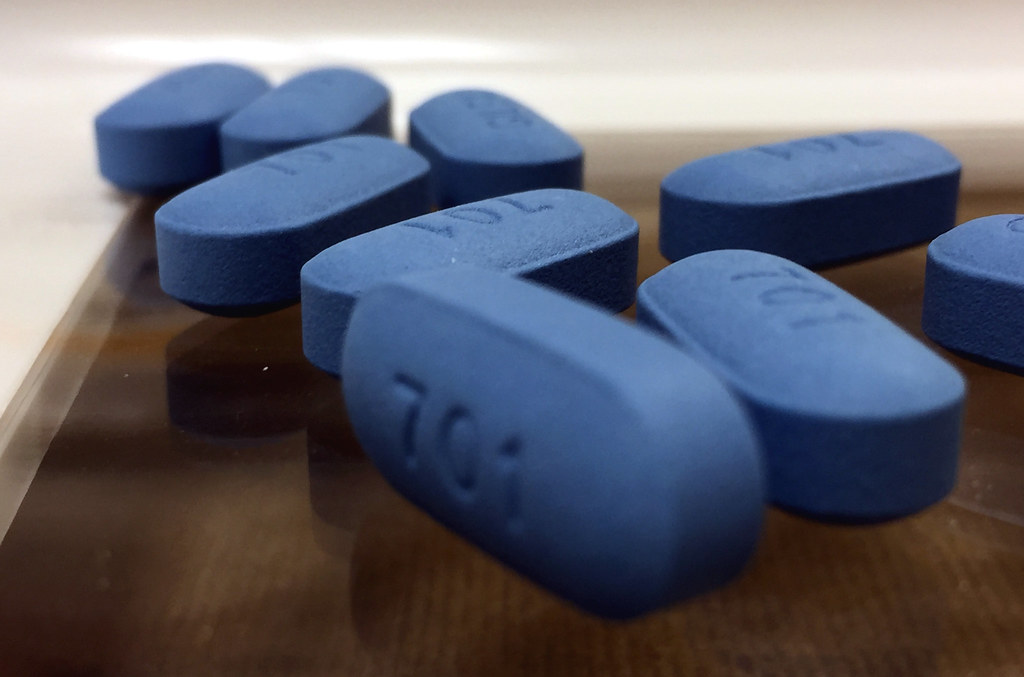Image credit: NIAID
As revolutionary as PrEP has been in changing the way we manage HIV, its high price has kept it from reaching the communities that are most at risk. However, a recent Grade A recommendation awarded by the United States Prevention Services Task Force (USPSTF) means that private insurers are now required by law to pay for PrEP. And they’re required to do it without having co-insurance costs, co-pays, or deductibles be shouldered by the consumer.
This is because the Affordable Care Act prohibits insurers from asking for cost-sharing or co-payments from those using Grade A or Grade B recommended strategies.
Currently, users of private or commercial insurance can have co-payments that range from $50 to $500. Those covered by Medicaid and other government programs don’t have any co-payments to worry about when it comes to PrEP.
Doctors Rochelle Walensky and David Paltiel lauded the move in an editorial published in the Journal of the American Medical Association, saying: “The significance of the new recommendations lies in the large number of individuals in the United States whose insurance coverage for HIV preventive services, notably PrEP, will be favorably affected. The USPSTF has taken an important step in securing access to services that will hasten the end of the HIV epidemic in the United States by 2030.”
This development is yet another welcome one in the continuing efforts to ensure that PrEP is made available to all. Last month, it was announced that a generic form of Truvada will come out in 2020. Truvada is the only drug approved by the Food and Drug Administration to be sold as PrEP, and cost nearly $3000 per month. A generic version could drastically lower the price.
Last month also saw the announcement of a partnership between the Centers for Disease Control and Prevention (CDC) and the pharmaceutical company Gilead that involves Gilead donating 2.4 million bottles of Truvada to the CDC over the next 11 years.










Considering that I can’t get many medications or treatments I need from my insurer, to have them take on this additional cost to prevent a disease that is already preventable seems wrong. Men just have to stop barebacking, period. It has to be socially unacceptable, and having HIV has to remain socially unacceptable. In fact, men should stop bottoming altogether, except for fingers or dildos. There’s no excuse for the financial drain on society caused by AIDS at this point. I survived the epidemic, as did a lot of guys, because we were sensible. That is part of why we… Read more »
I’m in a 100% agreement, let alone with everyone, one would encounter. And yeah, I’ve often thought of the cost fiscally, must absolutely astronomical. Secondly, where/how hiv came to be in the first place, was of grave concern to me. Just the other day I was talking to someone, he mentioned “prostate massage,” I hadn’t heard that term before, there’s clearly another
way to experience anal-penetration/entry if you have to go that route.
Personal responsibility, first and foremost, contributes positively ‘civically’ speaking.
Great so now even more of us can poison ourselves.
Reality check: Insurers pay for (“cover”) nothing. Insureds, through premiums and copays, pay for everything. Insurers get to keep what’s left over. If/when drugs or procedures become covered, premiums are increased to cover their newly added costs. All of which make the Affordable Health Care Act most UNaffordable for those who pay premiums and copays.
So, what is the advantage for the larger part of the population that doesn’t engage in risky behavior? Is that advantage a larger insurance bill to subsidize yet another rather smallish subset of the population that apparently doesn’t have the mental capacity to to make prudent decisions? Is it to subsidize those who can think only with their dick or ass? Is there nobody out there who realizes that NOTHING is cost free? Do any of you actually think the insurance or drug companies are suddenly going to become angelic benefactors and just absorb the cost of this at the… Read more »
Great, yet another reason for insurers to raise rates on everyone because some people just don’t know how to keep it in their pants or just do plain old safe sex…
It’s all about the “nobodies accountable mentality,” this country increasingly seems to be succumbing to. Until you know, whom you’re dealing with and even then, I personally, still do not trust them enough to be exchanging fluids other than saliva. Going to have become more unconventional to quell these burgeoning std’s, sti’s, HIV/aids. Especially here in the southeastern states, for the last two yrs., consecutively, these statistics are growing dramatically. I call Ft. Lauderdale ‘bottom-dale,’ my god, man, it’s all about anal-sex, it’s too scary the mindset/s here, good thing the weather here is lovely, though. The men are nice… Read more »
If you needed any more proof that radical activists control science, in addition to government, this recommendation is icing on the cake. The same protection that stops venereal disease stops the transmission of HIV. “But condoms chafe my bum”, they are a threat to my freedom, cry the activists. Let’s get the government to force private insurers to cover PREP, so that the costs (thousands of dollars per month) are paid by my co-workers. If you have Medicaid, let’s make the taxpayers pay. If I want to drive recklessly, I have to pay extra to insure my car. No smoke… Read more »
What about the rest of us that play safe and want to have that extra layer of protection. Lets face a few hard realities in this world condoms are not fool proof and break. I have seen plenty of articles that cover stealthing (secretly removing a condom during sex) and sabotage where condoms are intentionally compromised prior to or during a sexual encounter. This can be done either through puncturing them with needles in advance or intentionally breaking them during sex – There are plenty of vids on pornhub that demonstrate the latter. If a bottom goes to check for… Read more »
The “cost” of prep being that Truvada is awful for your body, there are countless lawsuits and even this blog has raised that issue before… but “yeah my prep is now covered.” The long term impact of prep on the body is potentially devastating but don’t try to be safer just take a pill.
so many complainers here. yes people should practice safer sex especially if you’re over the top sexually active with multiple partners, but what about cases of rape and you got infected that way? prep would be better to be had than nothing in those cases. I still think the costs will still be too high even with the ‘discounts’ they will provide. pharma companies all about the money. that should be the bigger outrage.